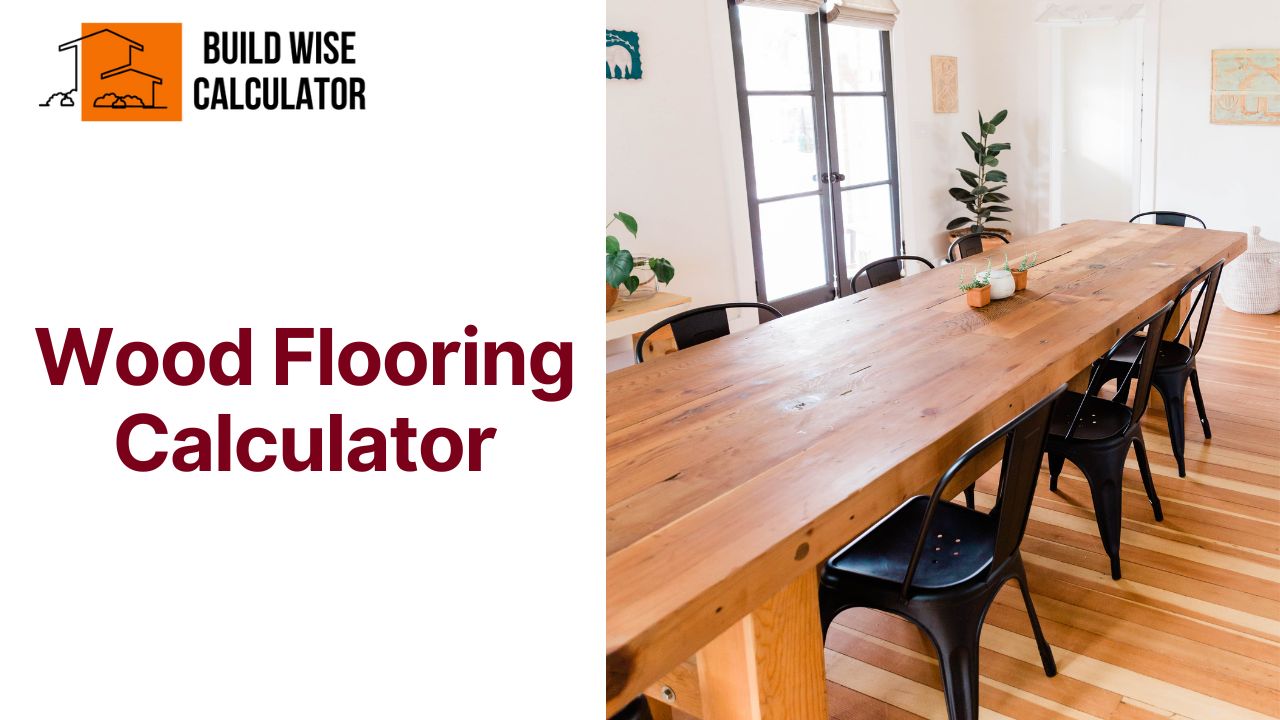What is Wood Flooring?
Wood flooring refers to a type of flooring made from natural timber or engineered wood products, designed to provide durability, aesthetic appeal, and comfort underfoot. It is a popular choice for both residential and commercial spaces due to its timeless beauty, versatility, and long-lasting quality.
Formula for Wood Flooring
To calculate the total number of flooring panels required, you can use the following formula:
N=Panel SizeTotal Floor Area
Calculate Total Flooring Area
To calculate the total floor area when you have a floor length and a width, you simply multiply the length by the width.
Total floor area=Floor length×Floor width
Example:
- Floor length = 10 feet
- Floor width = 10 feet
Total floor area=10 feet×10 feet
Total floor area=10 square feet
So, the total floor area is 100 square feet.
Calculate Board Area
To calculate the area covered by each board when you have a board length and a width, you simply multiply the length by the width.
One Board Area=Board length×Board width
Example:
- Board length = 3 feet
- Board width = 1 foot
Board Area=3 ft×1 ft
Board Area=3 square feet
So, each board covers an area of 3 square ft.
To find the number of boards required for a 100 square feet flooring area, you divide the total flooring area by the area covered by each board.
Number of boards required=Area covered by each boardTotal flooring area
Number of boards required=3 square feet100 square feet
Number of boards required≈33.33
Since you cannot have a fraction of a board, you would typically round up to the nearest whole number to ensure you have enough boards to cover the entire area. Therefore, you would need approximately 34 boards to cover a 100 square feet flooring area.
Add Waste Factor:
To add a 5% waste factor to the total floor area, you would calculate 5% of the total floor area and then add that amount to the original total floor area.
Waste=5%×Total floor areaWaste=1005×100Waste=5 square feet
Add the waste to the original total floor area:
Total floor area with waste=Total floor area+WasteTotal floor area with waste=100 square feet+5 square feetTotal floor area with waste=105 square feet
So, the total floor area with a 5% waste factor is 105 square feet
Total Cost of Boards
To find the total cost of the boards, you multiply the number of boards required by the cost per board.
Given:
- Number of boards required = 34 (from previous calculation)
- Cost per board = $10
Total cost=Number of boards required×Cost per boardTotal cost=34 boards×$10/boardTotal cost=$340
So, the total cost of the boards is $340.
If we add a 5% waste factor, then 35 boards would be required, and the total cost of the boards is $350.

Check out 26 Similar Calculators: